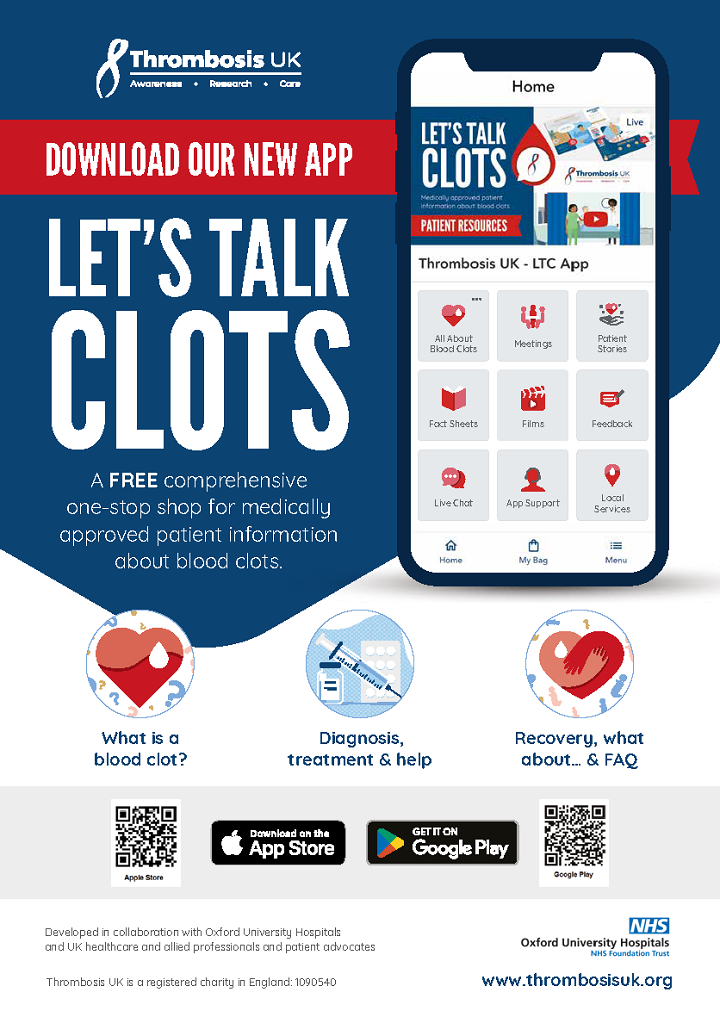VTE Apps
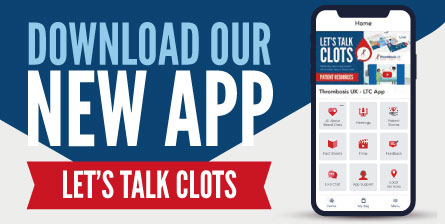
Help reduce your risk of DVT and PE in hospital with this simple app
Register here and then download the Let’s Talk Clots to access
Let’s Talk Clots
A FREE patient information app all about blood clots.
All information is medically approved and has been developed in collaboration with the charity, Thrombosis UK, Oxford University Hospitals NHS Foundation Trust, patients, lay supporters and healthcare providers.
The app shares key information about clots, including reducing risk, signs and symptoms, diagnosis and UK approved treatments and therapies.
Recovering after a blood clot? The app has information about recovery, including pain and breathlessness, managing anxiety and worry, regaining wellbeing, fitness and returning to everyday activities.
Questions about life after a diagnosis of a blood clot? Information is shared about considerations around life events, including pregnancy, family planning, travel, work and managing other conditions or treatments alongside risk factors or a personal medical history of thrombosis.
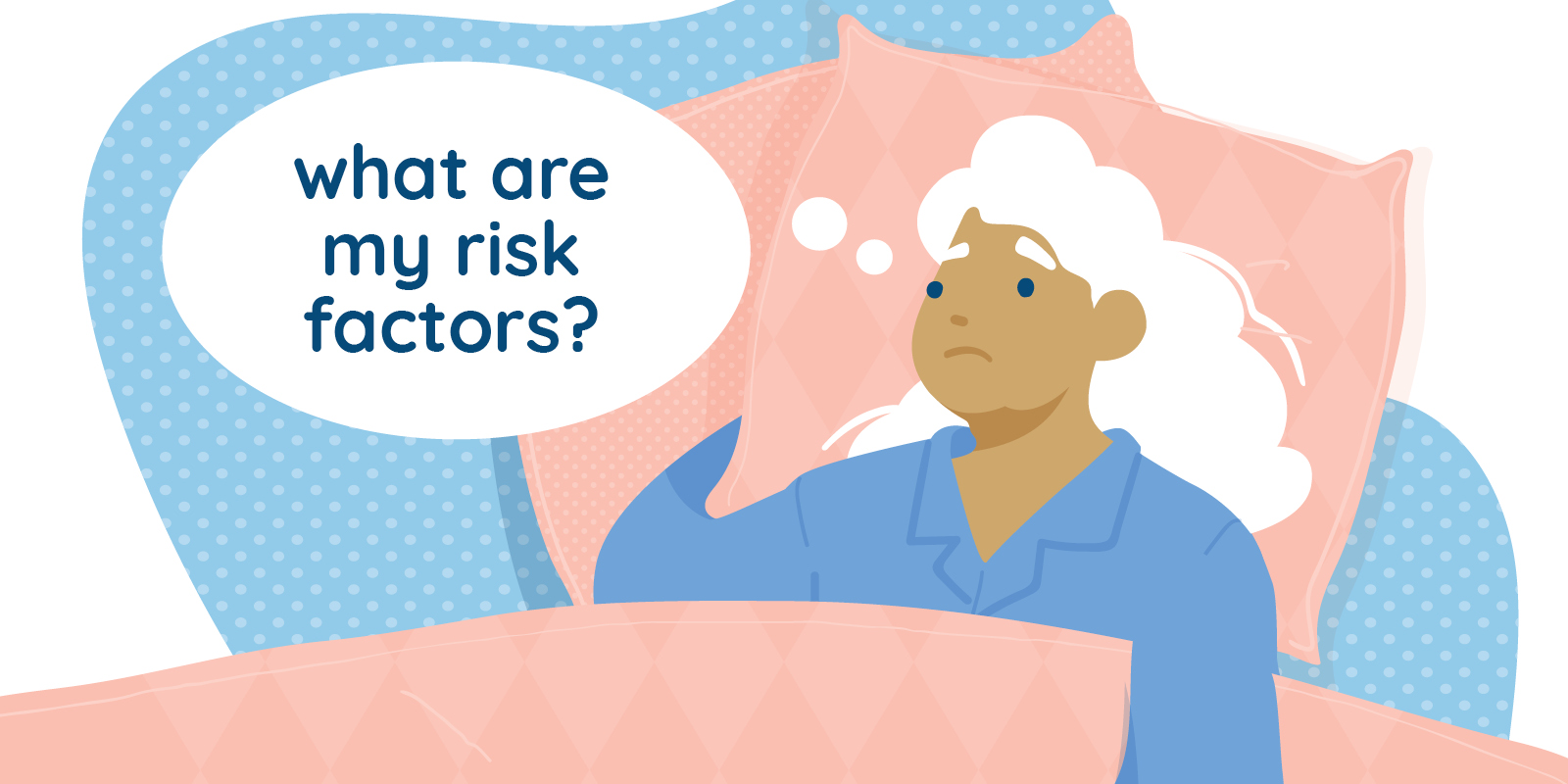

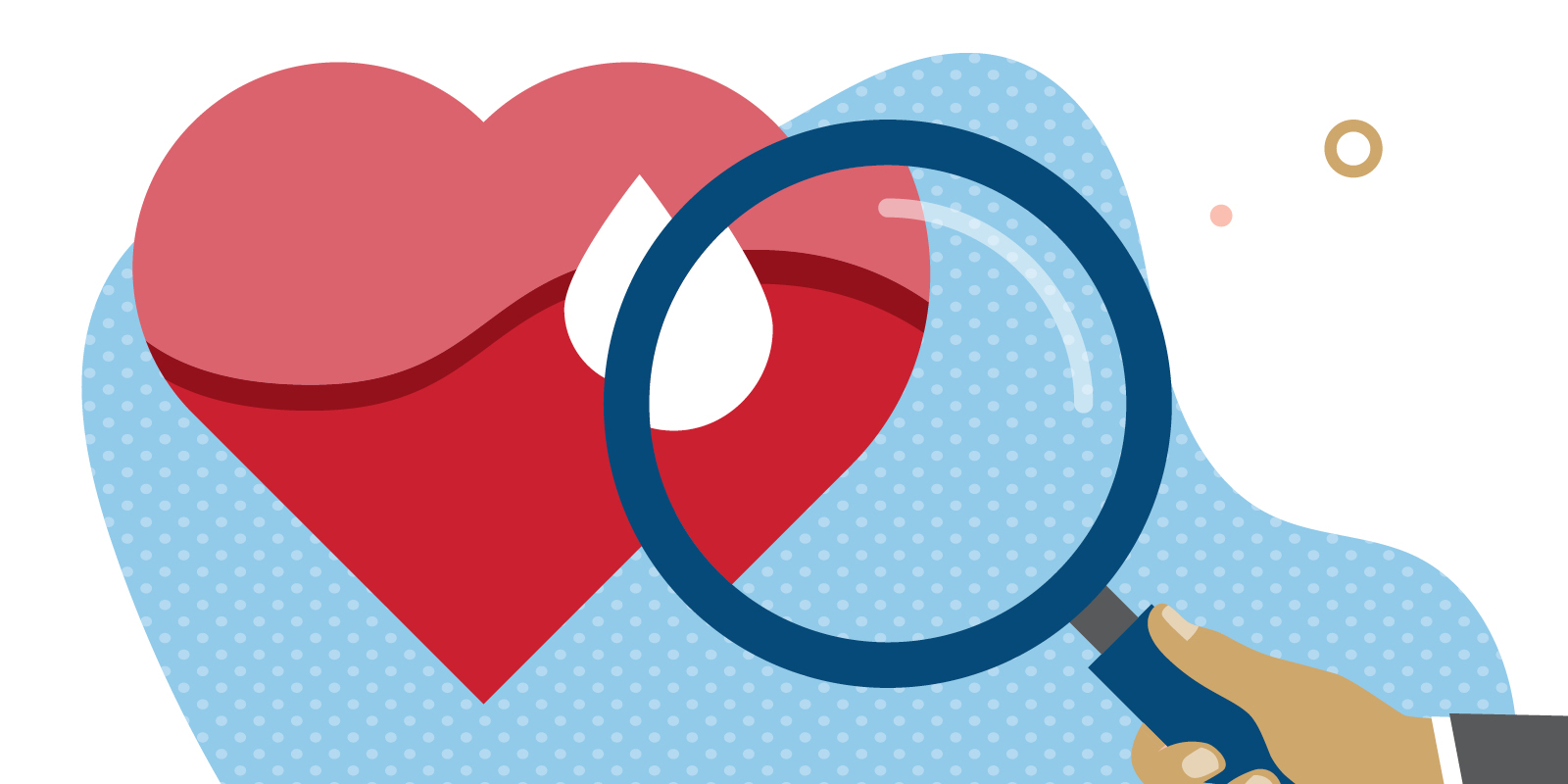

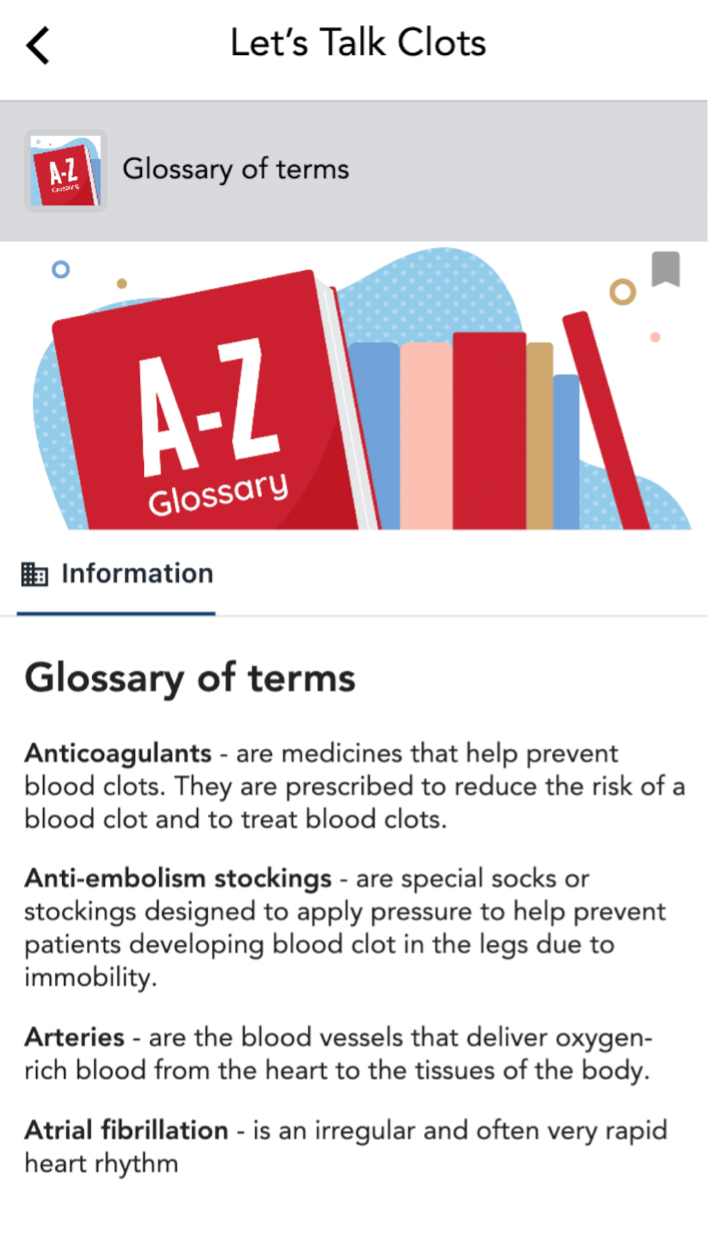
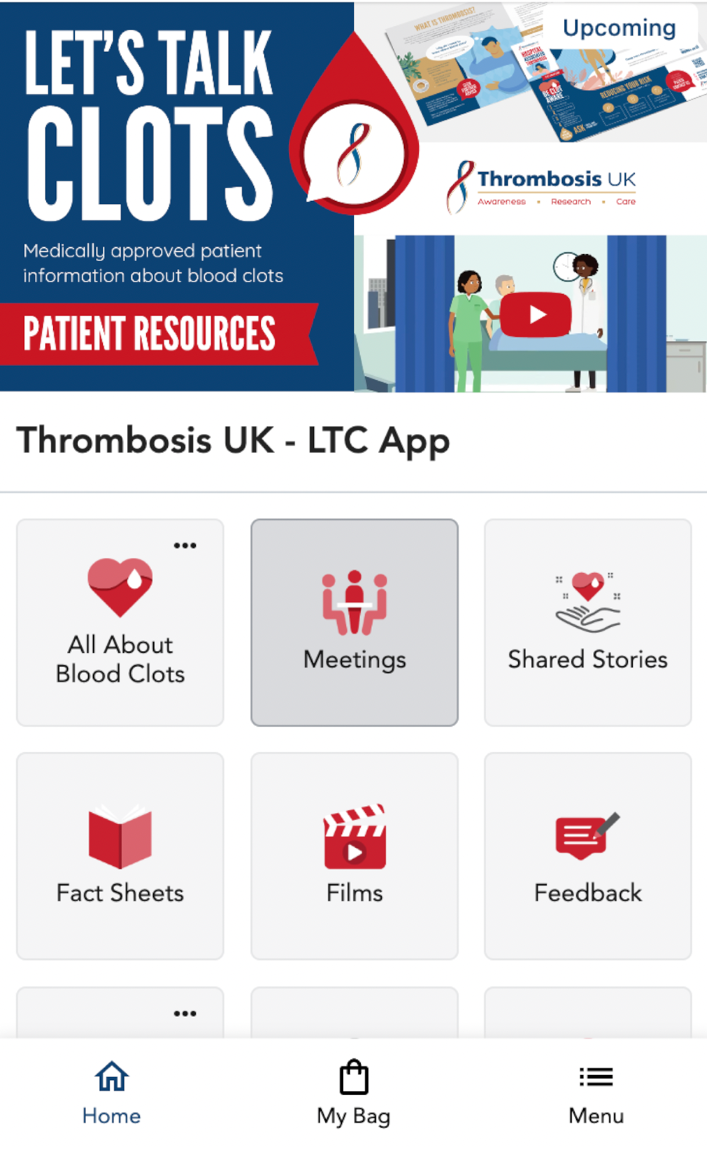
Download the free Let’s Talk Clots patient information app.
Alternatively Find the app Using these QR Codes

Scan the QR Code to find the app in the App Store

Scan the QR Code to find the app in the Google Play Store
Oxford University Hospitals has shared suggested text that could be included on patient admission and discharge letters and existing information resources a patient may be given while in hospital:
Discharge paperwork wording:
After you leave the hospital, there is a risk that you may develop a blood clot. See a doctor or go to A&E immediately if you have any new redness, pain or swelling in your legs, have difficulty breathing, feel faint, cough up blood or have chest pain. For information on blood clots and how to reduce the risk, visit thrombosisuk.org and download the app ‘Let’s Talk Clots’.
Admission paperwork wording:
Being admitted to a hospital can increase your risk of developing a blood clot. Tell a doctor or nurse immediately if you have any new redness, pain or swelling in your legs, have difficulty breathing, feel faint, cough up blood or have chest pain. For information on blood clots and how to reduce the risk, visit thrombosisuk.org and download the app ‘Let’s Talk Clots’.
Blood clot resources wording:
Hospital admission can increase your risk of developing a blood clot. Tell a doctor or nurse or go to A&E immediately if you have any new redness, pain or swelling in your legs, have difficulty breathing, feel faint, cough up blood or have chest pain. For information on blood clots visit thrombosisuk.org and download the app ‘Let’s Talk Clots’.
